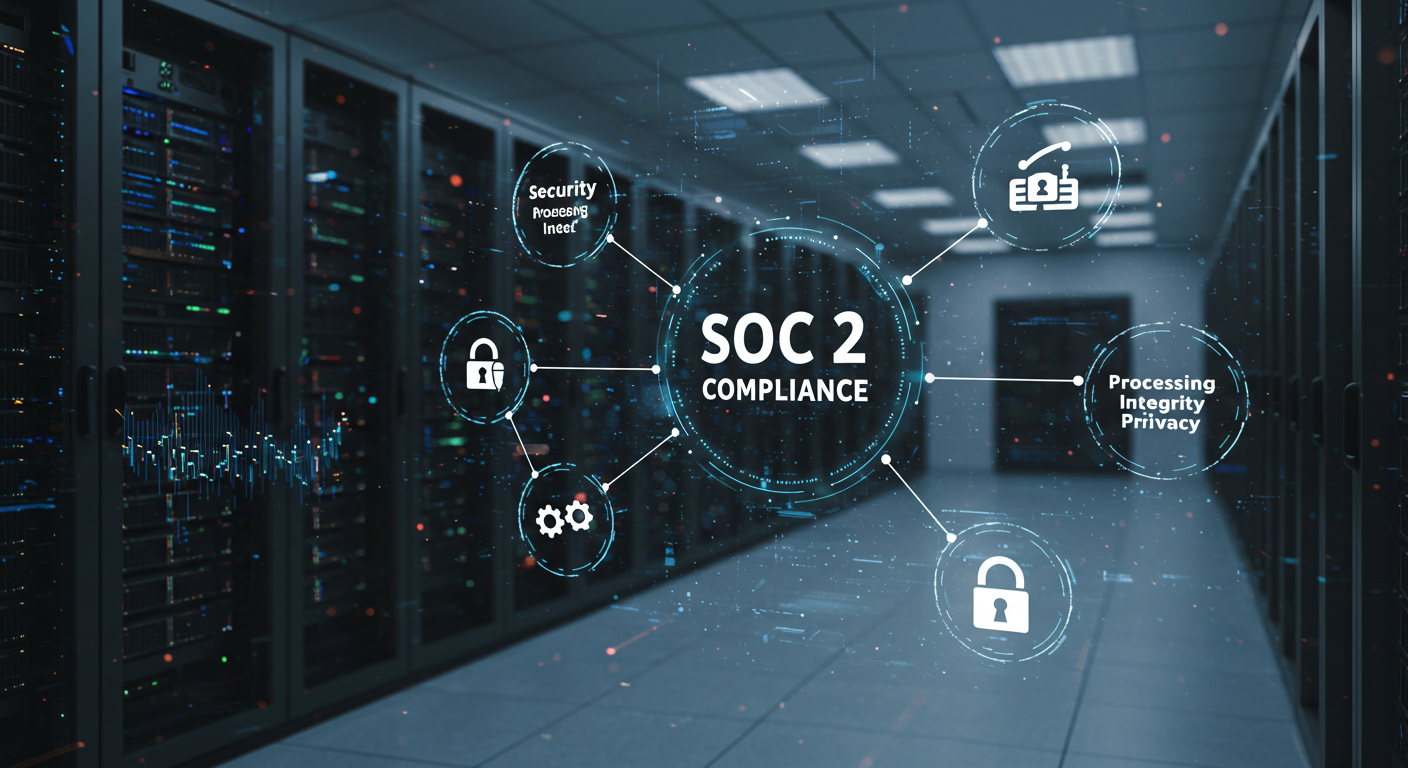The digital age has transformed the healthcare industry in extraordinary ways, revolutionizing patient care, research, and administrative efficiency. But with these strides forward comes an array of cybersecurity challenges. As healthcare organizations increasingly rely on technology, they become attractive targets for criminals aiming to exploit vulnerabilities for personal gain.
At the same time, healthcare organizations are bound by stringent regulatory requirements to protect patient data and maintain privacy. Navigating this complex landscape of cybersecurity threats and regulatory standards is not a simple task. It requires a robust strategy and reliable partners who can guide the way.
This article takes an in-depth look at this critical issue, focusing on the importance of cybersecurity within healthcare. We will demystify the complexities of HITRUST and HIPAA compliance, provide insight into what healthcare organizations should look for in cybersecurity services, and share some best practices for maintaining a secure, compliant digital environment.
Cybersecurity is an Essential Part of Healthcare
In the past, healthcare institutions primarily focused on providing quality care and ensuring patient satisfaction. However, as technology has become increasingly integrated into healthcare operations, from patient registration systems to electronic health records and telemedicine services, the need to secure these digital systems has grown.
Cybersecurity is no longer a luxury or an afterthought; it is a necessity. With cybercriminals growing more sophisticated and daring, healthcare organizations find themselves a prime target due to the wealth of sensitive information they hold. Patient records, financial information, and other sensitive data are all at risk. A single breach can lead to a cascade of negative effects, including identity theft, financial loss, and harm to the organization’s reputation.
That’s why cybersecurity has become a pivotal component of healthcare. By implementing robust healthcare cybersecurity services, organizations can protect their information assets, preserve their reputation, and, most importantly, maintain the trust of the patients who rely on them for care.
Understanding the Difference Between HITRUST & HIPAA
In the realm of healthcare information security, two acronyms often come to the fore: HITRUST and HIPAA. Though they are sometimes used interchangeably, they have different implications for healthcare organizations. Understanding these differences is crucial for effective cybersecurity management.
What is HITRUST?
HITRUST, or the Health Information Trust Alliance, is an organization that has established a common security framework (CSF) for healthcare organizations. It acts as a certifiable framework that provides organizations with a comprehensive, flexible, and efficient approach to regulatory compliance and risk management.
The HITRUST CSF is continually updated to incorporate new standards and regulations, making it an industry-leading framework in terms of comprehensiveness and relevance. It includes, consolidates, and cross-references globally recognized standards and regulations such as HIPAA, NIST, ISO, and more.
What is HIPAA?
HIPAA, or the Health Insurance Portability and Accountability Act, is a United States legislation introduced in 1996. This act provides data privacy and security provisions to safeguard medical information. It sets the standard for protecting sensitive patient data that healthcare organizations must comply with.
HIPAA is segmented into various rules, including the Privacy Rule and the Security Rule. The Privacy Rule establishes national standards for protecting individuals’ medical records and other personal health information, while the Security Rule sets national standards for protecting electronic personal health information.
Comparison of HITRUST vs HIPAA
While both HITRUST and HIPAA serve the mission of enhancing the security of health information, they offer different approaches.
HIPAA, as a set of federal regulations, mandates the bare minimum of what healthcare organizations must do to protect patient information, especially electronically stored information. However, it doesn’t provide specific guidance on how to meet these requirements. It’s a reactive measure, setting penalties for non-compliance and breaches.
On the other hand, HITRUST CSF is a comprehensive and certifiable framework that not only incorporates HIPAA requirements but also other international standards. It offers a proactive approach, providing organizations with a clear path to improve their security posture and reduce risk.
It is important to note that while being HITRUST certified can help organizations become HIPAA compliant due to the encompassing nature of the HITRUST CSF, being HIPAA compliant does not automatically imply HITRUST certification.
Benefits of HITRUST Certification
With an understanding of what HITRUST is, we can now delve into the benefits of obtaining HITRUST certification.
Improved Cybersecurity Posture
HITRUST certification helps improve an organization’s cybersecurity posture by ensuring that there are robust and effective security measures in place. The HITRUST CSF framework requires organizations to implement certain technical safeguards such as encryption, access controls, and network security, among others. This leads to a well-rounded, robust security infrastructure that can protect against a wide range of cyber threats.
Seamless Third-party Oversight
Working with third-party vendors is often a necessity in healthcare, but it also presents a potential security risk. HITRUST certification simplifies the process of vendor management by providing a universally recognized security benchmark. Organizations can use HITRUST CSF as a measure to assess the security competence of their vendors. Vendors that are HITRUST certified demonstrate that they meet the high security standards required in the healthcare industry.
Regulatory Compliance
Regulatory compliance is a complex task in the healthcare sector, as organizations often have to comply with multiple regulations simultaneously. HITRUST certification assists in ensuring compliance with a myriad of regulations, including HIPAA, as it incorporates these regulatory requirements into its framework. As such, becoming HITRUST certified can streamline the compliance process and help avoid penalties associated with non-compliance.
HIPAA Compliance Services
HIPAA compliance services provide healthcare organizations with the tools, resources, and expertise necessary to meet HIPAA regulations. Understanding what these services encompass is critical for leveraging them effectively.
What do HIPAA Compliance Services Include?
HIPAA compliance services typically include a range of solutions tailored to meet the requirements set forth by HIPAA. These may involve:
- HIPAA risk assessments to identify potential vulnerabilities in your organization’s protected health information (PHI) handling processes.
- Policies and procedures development to ensure your organization’s practices align with HIPAA requirements.
- Training programs to educate your staff on HIPAA regulations and the importance of maintaining the privacy and security of PHI.
- Incident management to handle any potential breaches of PHI quickly and effectively, minimizing damage and ensuring proper reporting.
- Continuous monitoring and auditing to ensure ongoing compliance and to quickly identify and address any new risks that arise.
HIPAA Risk Assessment Template
One critical component of HIPAA compliance services is the HIPAA Risk Assessment. This is a process that helps organizations identify potential risks and vulnerabilities to the confidentiality, integrity, and availability of PHI. Using a HIPAA Risk Assessment Template can simplify this process.
The template guides you through the essential aspects of a risk assessment, including identifying where PHI is stored, transmitted, and received, and analyzing your administrative, physical, and technical safeguards. By systematically working through the template, organizations can gain a comprehensive view of their potential risks, which is the first step in mitigating them effectively.
What Should You Look For In A Healthcare Cyber Security Service?
Selecting a healthcare cybersecurity service is not just about finding a provider; it’s about choosing a partner who can navigate your organization through the complexities of cybersecurity in healthcare. This partnership should go beyond just providing a set of services; it should involve a deep understanding of your organization’s unique needs and challenges. Here are two key factors to consider:
Experience & Expertise
The complex nature of healthcare systems and the sensitive data they handle require a cybersecurity service provider with a particular set of skills. Providers must not only have a deep understanding of the cybersecurity landscape but also expertise in the specific challenges faced by healthcare organizations. This can include experience with HIPAA and HITRUST compliance, risk assessments, and dealing with healthcare-specific threats.
Consider the provider’s track record in these areas and look for certifications or endorsements from recognized industry bodies. These credentials serve as proof of a provider’s competence and commitment to maintaining high standards in healthcare cybersecurity.
Security Solutions
The cybersecurity landscape is in constant flux, with new threats and vulnerabilities emerging regularly. This requires healthcare organizations to adopt a comprehensive and adaptable approach to their security measures.
A good cybersecurity service provider should offer a broad suite of security solutions to cover all aspects of your organization’s cybersecurity needs. This can range from threat intelligence and intrusion detection to encryption and data loss prevention. It’s also important to consider whether they offer tailored solutions that cater to your specific needs and challenges.
Best Practices For Improving Cybersecurity
Cybersecurity is not solely the responsibility of the IT department or your cybersecurity service provider. It’s a company-wide commitment that requires proactive participation from every team member. To build a robust cybersecurity posture, here are two key practices that healthcare organizations should consider:
Employee Training
The human factor is an often-overlooked aspect of cybersecurity. While advanced software solutions can provide substantial defense against external threats, their effectiveness can be compromised by a single employee’s actions. Whether it’s clicking on a link in a phishing email or using weak, easily guessable passwords, employees often unintentionally serve as entry points for cyberattacks.
Therefore, regular and comprehensive cybersecurity training is essential for all staff. Training should not be a one-time event, but a continuous process that keeps pace with the evolving cyber threat landscape. It should focus on both the technical and behavioral aspects of cybersecurity.
On the technical side, employees should learn about secure password practices, recognizing phishing attempts, and safe internet usage. On the behavioral side, training should instill a culture of security, emphasizing the importance of everyone’s role in maintaining the organization’s cybersecurity.
Reviewing Policies & Procedures
Cybersecurity policies and procedures are the foundation of a healthcare organization’s defense mechanism. These documents dictate the organization’s approach to various aspects of cybersecurity, from data protection and access controls to incident response and disaster recovery. However, in the fast-paced world of cybersecurity, a policy that was effective a year ago may be insufficient today.
This is why it’s important to regularly review and update these policies and procedures. The review process should be systematic and comprehensive, considering all areas of the organization’s cybersecurity infrastructure. It should involve assessing the effectiveness of existing policies, identifying gaps or areas of improvement, and then making necessary updates.
During these reviews, it’s also important to consider regulatory requirements. Healthcare organizations often operate under strict regulations like HIPAA and HITRUST, which have specific requirements for data protection and privacy. Regular policy reviews can help ensure that your organization remains compliant with these regulations while also maintaining a strong defense against cyber threats.
What Can Organizations Expect When Working With A Healthcare Cyber Security Service?
Selecting a healthcare cybersecurity service is a significant decision. It can shape the way your organization addresses cybersecurity challenges, compliance requirements, and patient trust. But what does engaging with a cybersecurity service entail? What changes can your organization anticipate, and how can these changes fortify your cybersecurity infrastructure? The following sections discuss the typical services provided and the expected benefits of such partnerships.
Customized Solutions
Each healthcare organization is as unique as the patients it serves. This uniqueness extends to the organization’s infrastructure, the kind of data it handles, its operations, and its cybersecurity needs. Therefore, a one-size-fits-all approach to cybersecurity is far from effective. A healthcare cybersecurity service must recognize this fact and provide customized solutions tailored to meet each organization’s specific requirements.
Customized solutions should go beyond simply plugging security gaps; they should aim to optimize the organization’s security posture holistically. This involves understanding the organization’s operational flow, the nature of the data handled, and the potential threats it may face. The cybersecurity service should then develop a comprehensive, tailored plan that addresses identified vulnerabilities while promoting operational efficiency.
On-site & Remote Support
The complexity of healthcare systems means that, at times, on-site support is necessary. This support enables the cybersecurity service provider to have a direct interaction with the system and resolve complex issues that may not be possible remotely. On-site support is also beneficial in cases of emergencies, where quick physical access to the systems is necessary.
Conversely, remote support offers the advantage of continuous monitoring, faster response times, and cost savings. It allows the cybersecurity team to promptly detect and respond to potential threats, often resolving them before they can inflict damage.
A competent healthcare cybersecurity service provider should offer a blend of both on-site and remote support. The service should be able to swiftly transition between the two modes depending on the situation and the specific requirements of the healthcare organization.
Regular Testing & Updates
The field of cybersecurity is a game of constant evolution. With new threats emerging daily, maintaining a robust cybersecurity posture requires regular testing and updating of security measures.
Regular testing can come in the form of penetration testing, where the cybersecurity service actively tries to breach the organization’s security defenses. This simulates real-world attacks and uncovers potential vulnerabilities that might not be evident during routine operations.
Regular updates are equally crucial. As hackers continually devise new ways to exploit systems, software developers are in a constant race to patch these vulnerabilities. Keeping all systems updated ensures that these patches are applied promptly, preventing hackers from exploiting known vulnerabilities.
A reliable healthcare cybersecurity service provider understands this dynamic and ensures regular testing and updates are integral parts of their service provision.
Conclusion
As we near the end of our exploration, it becomes clear that healthcare cybersecurity is not a singular process but a multifaceted approach involving regulatory compliance, risk assessments, employee training, and a vigilant cybersecurity service. The intersection of HIPAA and HITRUST underscores the need for a harmonized, standardized, and robust cybersecurity framework, a task accomplished through the right cybersecurity services.
Engaging with healthcare cybersecurity services can usher in improved security postures, seamless third-party oversight, regulatory compliance, and risk management. It empowers healthcare organizations to secure their digital frontiers, protect patient data, and meet their compliance obligations.
Healthcare providers must remember that effective cybersecurity is not a destination but a journey that requires constant vigilance, regular updates, and a resilient mindset. Through diligent compliance with HIPAA, achieving HITRUST certification, and partnering with a competent healthcare cybersecurity service, healthcare organizations can continue their digital transformation journey with confidence, bolstered by the assurance of security.
Summary of HITRUST & HIPAA Services
HITRUST and HIPAA form a dual pillar for protecting health information. While HIPAA lays out the regulatory requirements for protecting patient data, HITRUST provides a comprehensive and certifiable framework incorporating HIPAA requirements and a myriad of other security standards. Together, they help organizations build a formidable defense against cyber threats.
Advantages of Using Healthcare Cybersecurity Services
A healthcare cybersecurity service offers numerous advantages, including improved security posture, regulatory compliance, and access to expert guidance. Furthermore, they provide comprehensive security solutions such as threat intelligence, intrusion detection, and ongoing monitoring. Regular staff training, consistent review of policies and procedures, and customized solutions make cybersecurity measures more effective.
FAQs
Navigating the world of healthcare cybersecurity can raise a multitude of questions. The complex terminology, evolving regulations, and technical nuances can often seem overwhelming. In this section, we aim to answer some of the most common queries related to healthcare cybersecurity services, HIPAA risk assessments, and the best practices for ensuring HIPAA compliance.
What is the Cost of a Healthcare Cybersecurity Service?
The cost of a healthcare cybersecurity service can vary widely based on the size of the organization, the complexity of the IT environment, the specific services required, and the level of expertise of the service provider. A comprehensive service that includes risk assessment, HIPAA compliance services, ongoing monitoring, and incident response would typically cost more than a basic service.
How Often Should I do a HIPAA Risk Assessment?
The HIPAA Security Rule does not specify how frequently risk assessments should be conducted. However, it requires them to be performed periodically. Best practices recommend conducting a HIPAA risk assessment annually or whenever significant changes occur in your organization, such as implementing a new electronic health record (EHR) system, altering administrative processes, or following a data breach.
What is the Best Way to Ensure HIPAA Compliance?
The best way to ensure HIPAA compliance is to adopt a comprehensive approach that includes conducting regular risk assessments using a HIPAA risk assessment template, implementing necessary administrative, physical, and technical safeguards, and providing regular staff training. Additionally, working with a healthcare cybersecurity service experienced in HIPAA compliance can provide expert guidance and resources.







